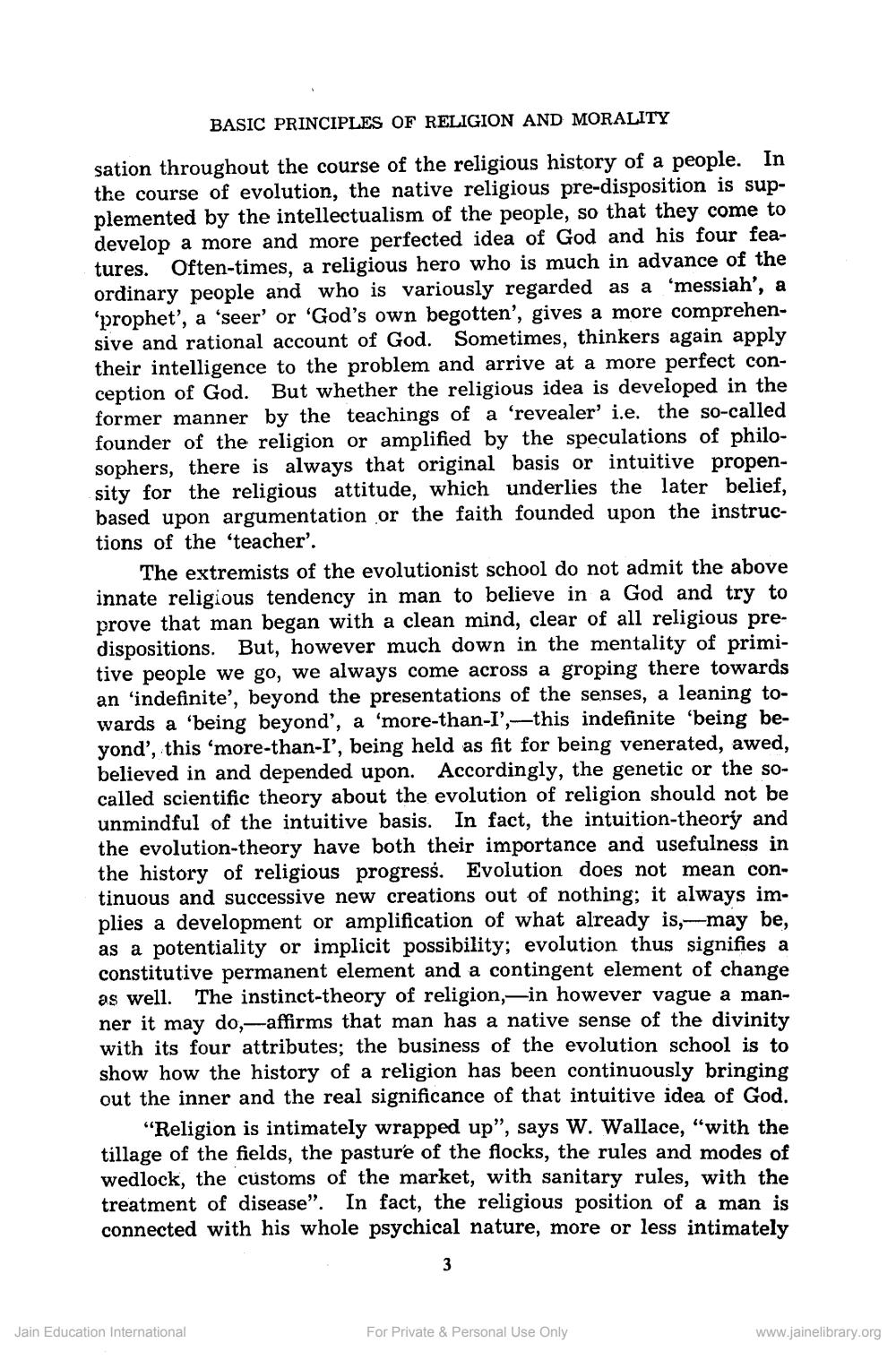________________
BASIC PRINCIPLES OF RELIGION AND MORALITY
sation throughout the course of the religious history of a people. In the course of evolution, the native religious pre-disposition is supplemented by the intellectualism of the people, so that they come to develop a more and more perfected idea of God and his four features. Often-times, a religious hero who is much in advance of the ordinary people and who is variously regarded as a 'messiah', a 'prophet', a 'seer' or 'God's own begotten', gives a more comprehensive and rational account of God. Sometimes, thinkers again apply their intelligence to the problem and arrive at a more perfect conception of God. But whether the religious idea is developed in the former manner by the teachings of a 'revealer' i.e. the so-called founder of the religion or amplified by the speculations of philosophers, there is always that original basis or intuitive propensity for the religious attitude, which underlies the later belief, based upon argumentation or the faith founded upon the instructions of the 'teacher'.
The extremists of the evolutionist school do not admit the above nate religious tendency in man to believe in a God and try to prove that man began with a clean mind, clear of all religious predispositions. But, however much down in the mentality of primitive people we go, we always come across a groping there towards an 'indefinite', beyond the presentations of the senses, a leaning towards a 'being beyond', a 'more-than-I',—this indefinite 'being beyond', this ‘more-than-I', being held as fit for being venerated, awed, believed in and depended upon. Accordingly, the genetic or the so
ed scientific theory about the evolution of religion should not be unmindful of the intuitive basis. In fact, the intuition-theory and the evolution-theory have both their importance and usefulness in the history of religious progress. Evolution does not mean continuous and successive new creations out of nothing; it always implies a development or amplification of what already is,may be, as a potentiality or implicit possibility; evolution thus signifies a constitutive permanent element and a contingent element of change as well. The instinct-theory of religion,-in however vague a manner it may do, affirms that man has a native sense of the divinity with its four attributes; the business of the evolution school is to show how the history of a religion has been continuously bringing out the inner and the real significance of that intuitive idea of God.
"Religion is intimately wrapped up”, says W. Wallace, "with the tillage of the fields, the pasture of the flocks, the rules and modes of wedlock, the customs of the market, with sanitary rules, with the treatment of disease". In fact, the religious position of a man is connected with his whole psychical nature, more or less intimately
Jain Education International
For Private & Personal Use Only
www.jainelibrary.org




